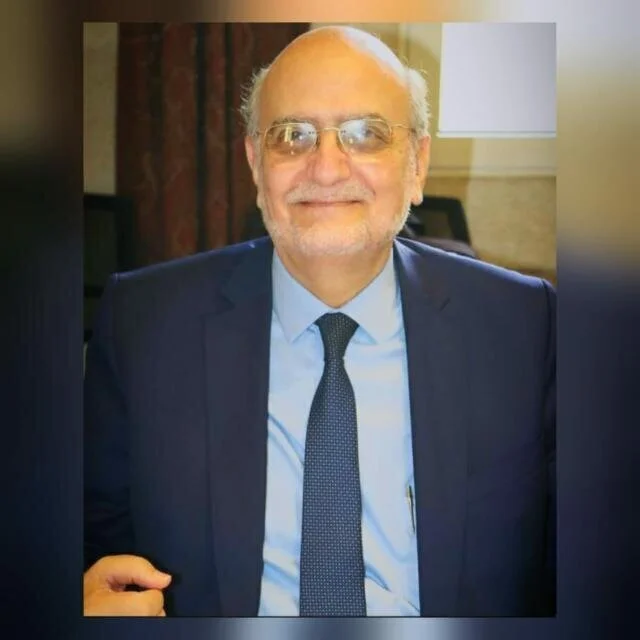The Middle East Council of Churches: Towards the Twelfth General Assembly
Dr. Michel E. Abs
Secretary General of the Middle East Council of Churches
For months, administrative and operational preparations have been underway for the convening of the twelfth General Assembly of the Middle East Council of Churches at a rate that increases as we get closer to its maturity, as this assembly comes five years and eight months after the eleventh assembly that was held in Amman in 2016. It goes without saying that the delay is caused by the pandemic which has been ravaging humanity for three years and is still doing so up till now.
It is worth mentioning that this assembly is the first to be held in Egypt, at the kind invitation of His Holiness Pope Tawadros II, Pope of Alexandria and Patriarch of the See of St. Mark, with the support of Reverend Dr. Andre Zaki, President of the Evangelical Synod of the Nile.
The Assembly is to be held under the theme "Take Encouraged! I Am He! Do Not Be Afraid!" (Matthew 27:14), and an icon has been chosen from the site of the nuns of the monastery of St. Demiana of the Coptic Orthodox Church to accompany the logo.
The Council's departments carry-out their respective usual work in addition to the tremendous amount of work that is required for the preparations for a general assembly which is to bring together all the patriarchs of the East and all the leaders of the churches. Worth mentioning that the assembly’s program has been unconventionally set up as it is to include religious-cultural activities that have been incorporated in it for the first time in the history of the Council’s general assemblies.
Moreover, it is worth mentioning that the Church of Egypt, with true partnership full of love and giving, is providing the Council with all the support and facilities needed for our endeavor, and this with the joint input of its various denominations.
All this that we have said so far pertains to the administrative and operational aspects that have been set up for the Assembly.
In terms of future aspirations as well as of that which relates to the intellectual, strategic and programmatic aspects, diligent work is being done in parallel with the administrative and operational work.
The Preparatory Committee for the General Assembly, which is a sub-committee of the Executive Committee of the Council, in coordination with the team of the Council, has identified five areas that must be dealt with in the deliberations planned for the Assembly:
1- Diakonia and social service
2- Communication and advocacy
3- Christian witness and ecumenical relations
4- Dialogue, cohesion, and the enhancing of social capital
5- Institutional development and sustainability
The directors of the various MECC departments, in coordination with the General Secretariat, have formed preparatory working groups to discuss these topics, leading to the formulation of a working paper and an agenda for the discussions that are to take place concerning each area topic. The ensuing papers will be adopted as a basis for discussion during the General Assembly. Participants in the Assembly are thereby assigned to working groups, each according to her/his competency, and each working group will be asked to deal with one of the five topics
At the end of the period set up for group deliberations, for which ample time has been allocated, the rapporteurs of the working groups are to present the results of group recommendations to the General Assembly which is to meet in a plenary session to hear and discuss the various sub-groups reports. The sub-groups recommendations are thus to determine the various strategic directions of the Council and thereby set up its priorities for the next four-year phase in its work-calendar plan.
Throughout its history, which is about to reach half a century, the MECC has proven that everyone has a say within it, and that it is endowed with an ongoing lively interaction with its surroundings, in addition to being the only place of Christian Togetherness all in the Middle East.
Therefore, the Council has thus been able to build up for itself a high institutional status among all its member-groups in the region and this according to their various backgrounds.
It thus goes without saying that the Council has been a forerunner in various fields, opening doorways to fields that other institutional set ups either had neglected or had not dared to enter. It has opened several pathways for Eastern societies and guided them to ways that brought them well-being at all levels, in the fields of human as well as cultural interchange and dialogue.
As we approach the Council's golden jubilee in 2024, we are preparing, after the General Assembly is over, to celebrate in a way that befits the Council's history and achievements, without forgetting how much it has played and still plays a role as a tool for social change and growth.
The Council, which has reached at present its fiftieth gateway, is fully aware of the priorities and challenges it is facing and thus remains a tool for the Church as well as for society at large for it to embrace a more prominent life-growth process.

